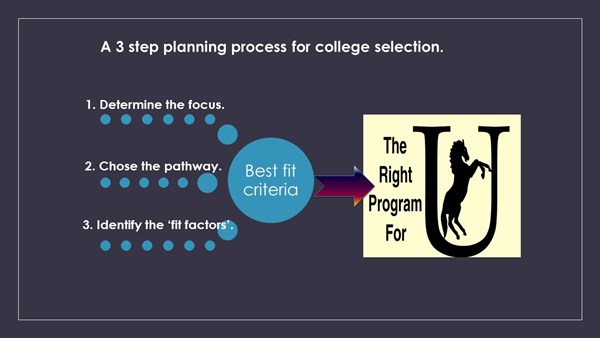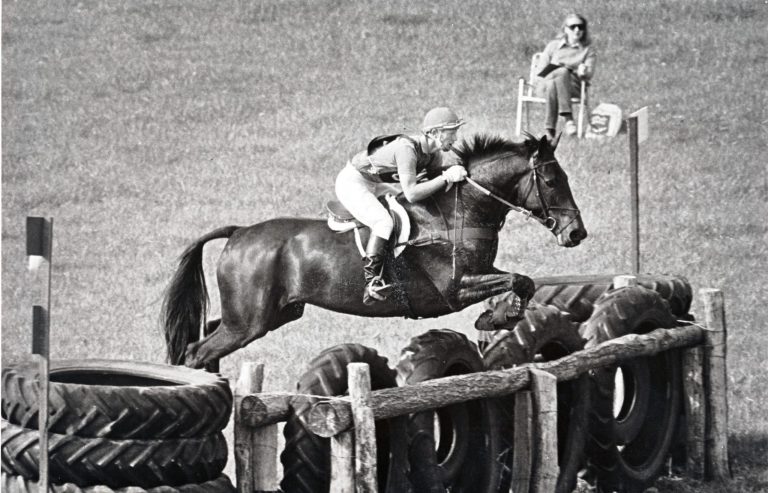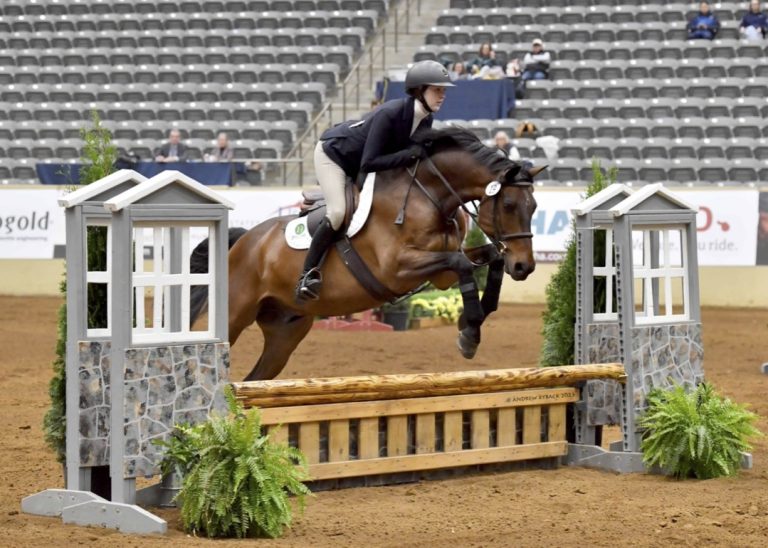The start of the New Year comes with all kinds of resolutions many of which focus on some aspect of planning. So given that our second column lands in the first part of January, we are focusing on helping you develop a plan for college selection that puts you in the ideal position to determine your “best fit” college. After all, failing to plan is planning to fail and if you are looking to go to college we are pretty sure you aren’t looking to fail! While it’s likely that at some point you took a path or made a decision without a lot of advanced planning and it still turned out ok, when it comes to the largest one-shot financial investment you are likely to make (short of buying a house or farm), college selection is not something to be taken lightly.
Not to scare you, but knowledge of the financial realities of college selection is more important than ever given current statistics. According to the National Center for Education Statistics, it’s taking longer and longer to earn that degree and less than half of those who earn a bachelor’s degree do it within what used to be the standard four-year time period. Then there are the student debt load crises. According to The Institute for College Access and Success, two-thirds of graduates carry some college debt with the average debt landing around $25,000. However, one of every 10 students will graduate with more than $40,000 of debt and another 1 percent will carry $100,000 or more. All this scary data doesn’t mean you should toss aside your college dream. Rather, it means it’s essential to create a plan to navigate the college selection process so that you make a choice to help you graduate on time while carrying what you determine—in advance—a reasonable debt load. While debt is a scary term, keep this in mind—college debt is one of very few kinds of debt that is considered ‘good’ because it does pay off. How much does it pay off? A review of labor department statistics by the Economic Policy Institute in Washington D.C. found in 2013 those with a bachelor’s degree earned on average, 98 percent more per hour than those without a degree.
There is no magical formula that delivers the one best college option. Largely this is because college planning isn’t the same for everyone. People have different goals, interests, needs, experiences and limitations. What may be among the best choice for one may be among the worst choice for another. Families ask us all the time, “Who has the best equine program?” and our response always comes in the form of a series of questions focused on uncovering the criteria that would lead to a “best fit” choice. Those questions fit into the three-step planning process depicted below.

In this month’s column we are focusing on the first planning step which involves finding the answer to the question, “What kind of an equine focus is best for you?” When you envision your college courses, how much “horse” is there? Is it horses every day, or horses some of the days or is it horses here and there? Take some time and think about this as it will lead you to answering the question of whether you want the focus on horses to be broad, general or specific.
If your vision of college includes full-on horse course immersion (every day and as much of every day as possible) then an equine specific focus may be the best fit. In this kind of a curriculum students tend to enter with a pretty defined image of their career being focused on the hands-on aspects of the industry where eat-breathe-sleep horses is the mantra. The title of the degree will typically include “Equine” as opposed to, for example, Animal Science, and the description will normally indicate that the degree is targeted to prepare students for one or more aspects of hands-on careers with horses. These degree programs are often also highly specialized such as the case of degrees in the areas of equine training, equine rehabilitation and equine-assisted therapy. The goals of equine specific programs are delivered in a curriculum designed to provide as much equine intensive coursework as possible within the confines of other general education requirements imposed by internal college policies and external college accrediting agencies.
If your vision is more in line with wanting the assurance of coursework focused on horses and the horse industry while also learning about broader complementary areas such as science and management, then an equine general focus is likely a better fit. Titles of degrees may or may not have equine in them and are likely to also include Animal Science and/or Management. Students choosing this kind of focus typically have an interest in pursuing a career in the equine industry but don’t see their interests limited to hands-on positions or a particular area of hands-on employment. Given this, it makes sense to pursue a curriculum that has more of a split between equine and non-equine coursework. Graduates of curriculums with an equine general focus are often equally able to apply their college learning to careers in the hands on and support sectors of the equine industry as well as complementary areas such as animal science, business and management. This focus also often provides a course of study suitable to preparing students for graduate studies such as earning and MBA in Marketing, an MS in Equine Nutrition or even broader areas such as Education or Psychology.
If what you envision is closer to having the opportunity to continue your personal (rather than professional) growth in horse knowledge and experiences while keeping an opening for a possible career in some aspect of the horse industry then a broad focus may be your best bet. With this kind of focus a student majors in something that is not directly linked to equine but intends to find ways to bring equine into their studies. Think of just about any area of study in college and we will bet you a link can be built to some part of the horse industry (feel free to challenge that by chatting with us on the Equine Academics App!) We often say that equine is one of the most interdisciplinary subject areas with the broadest array of career opportunities. A student majoring in Art, Psychology, Math, Engineering, Computer Science or Political Science can work to create opportunities to include horses in their assignments, papers and projects. The difference is that in the broad focus the student has to work to intentionally to bring horses into their coursework and that often means meeting with advisors and course professors to explore ideas on how to do this. This is quite a bit different than the equine general and equine specific focus where the horse part is automatically there. Still, it can be done and can be more accepted if studies are being completed at a college that has equine offerings and/or riding teams.
Once you have had a chance to determine the focus that feels like the best fit for you, spend some time on the Equine Education Network exploring equine offerings across the U.S. You can find it on the free Equine Academics app, just search “Equine Academics” in your app store or use the following address: http://bit.ly/EquineAcademicsAppDownload. With your new insight into broad, general, and specific programs, you should be able to more clearly evaluate the coursework in each program and have more confidence in understanding the differences between them. Next month we will focus on the Step 2 Question:What degree pathway fits best with your interests?
Until next time we are wishing you bright skies and happy trails.
Tim Williams and Dr. Karin Bump founded the National Association of Equine Affiliated Academics in 2009 as a cooperative not-for-profit organization linking together colleges and universities with undergraduate equine programs. Karin has over 25 years of experience in equine undergraduate education and is a Full Professor at Cazenovia College. Tim’s professional background includes over 35 years of college admission/marketing experience helping thousands of students find their path to college and career. Tim is also co-founder of The Right Program For U which provides services to help match equestrian interests with college choices and career options. Have a question you would like answered or an area you would like to see addressed in a future column? Please send it to Tim Williams at Twilliams@naeaa.com.
Save










